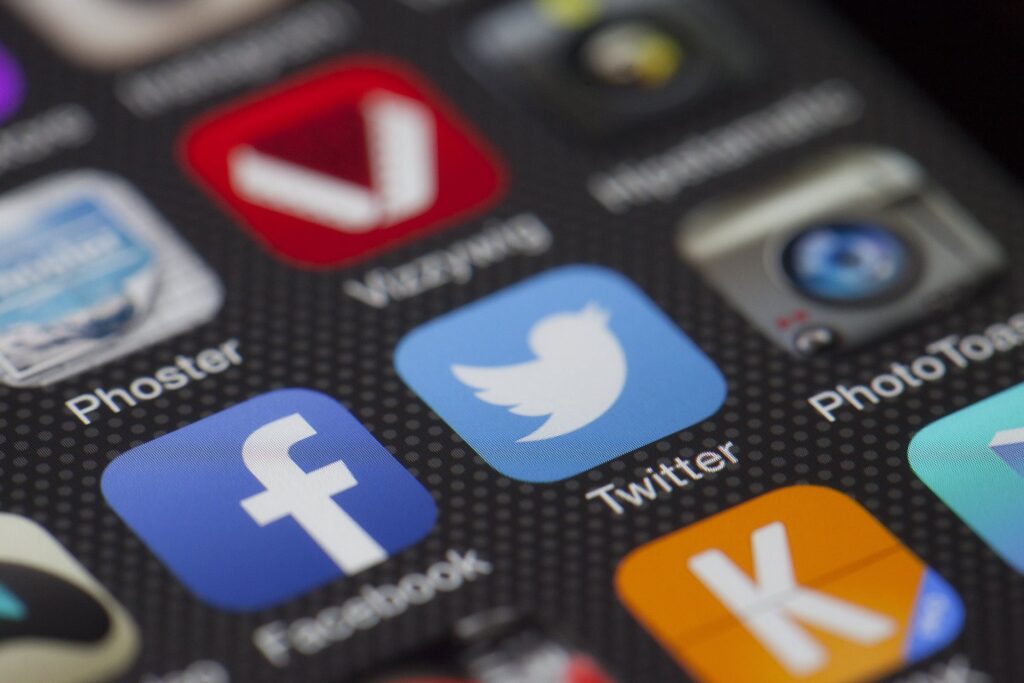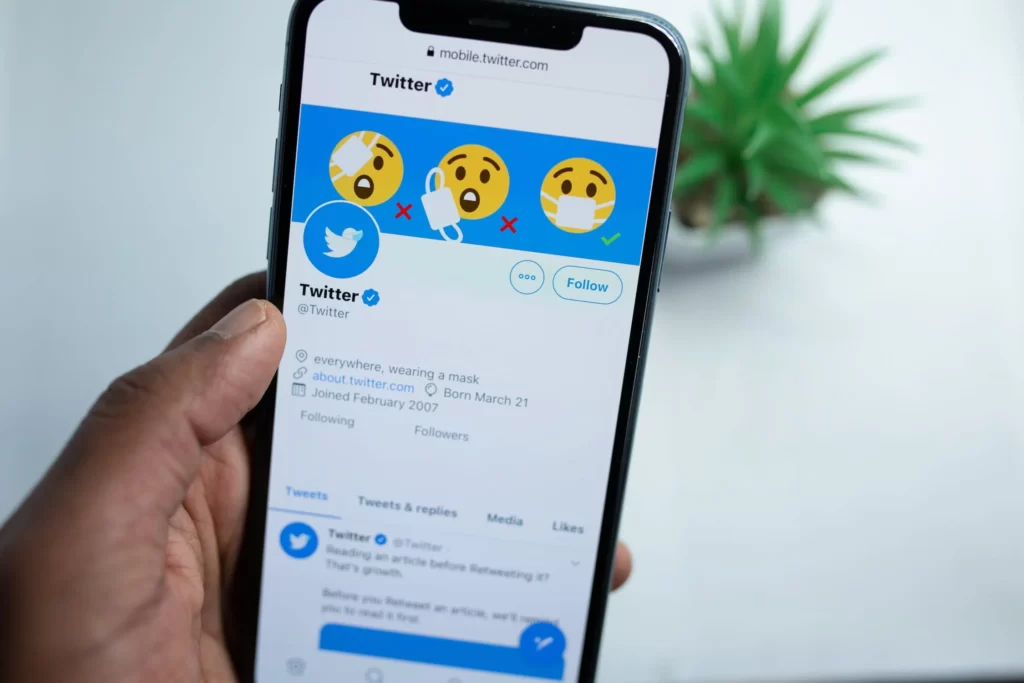
Social media platforms have become an integral part of our lives, but their impact on mental health and well-being is a complex and important topic of discussion. On one hand, social media allows us to stay connected with loved ones, find support, and express ourselves creatively. On the other hand, heavy social media use has been linked to increased rates of depression, anxiety, and loneliness. It’s crucial to understand both the positive and negative effects of social media on our mental health and take steps to protect ourselves.
Key Takeaways:
- Heavy social media use is associated with an increased risk of depression, anxiety, and loneliness.
- Social media can provide a sense of connection, emotional support, and creative expression.
- Negative experiences on social media, such as cyberbullying, can have detrimental effects on mental health.
- Limiting social media use, monitoring its impact on mood, and finding alternative activities can help protect our mental well-being.
- Further research is needed to fully understand the complex relationship between social media and mental health.

How Social Media Affects Mental Health
Social media has been linked to various negative effects on mental health, including increased rates of depression, anxiety, and addiction-like behaviors. While these platforms offer numerous benefits, such as staying connected with loved ones and finding emotional support, it’s essential to recognize the potential risks they pose to our well-being.
Negative experiences on social media:
- Feelings of inadequacy: Constant exposure to carefully curated and idealized lives of others can lead to comparisons that negatively impact self-esteem.
- Fear of missing out: Seeing others’ highlight reels can create a fear of missing out on experiences, leading to feelings of anxiety and isolation.
- Depression and anxiety: Excessive social media use has been associated with higher rates of depressive symptoms and anxiety disorders.
- Cyberbullying: Online harassment, such as cyberbullying, can cause significant emotional distress and contribute to mental health problems.
- Self-absorption: Social media’s focus on self-promotion and validation can contribute to self-centeredness and narcissistic tendencies.
One of the factors that make social media addictive is the constant connectivity and unpredictability it offers, similar to gambling or addiction. The reward-based nature of these platforms can lead to compulsive use and poor impulse control, negatively impacting our mental well-being.
To mitigate the negative effects of social media on mental health, it is crucial to establish a healthier balance. Limiting social media use, monitoring its impact on mood, and finding alternative activities can help create a more positive and mindful online experience. It’s also essential for individuals, policymakers, technology companies, parents, caregivers, and researchers to take collective action to address the potential harms and create safe and healthy digital environments.
Protecting Mental Health in the Digital Age
It is vital to actively protect our mental health in the digital age. By setting boundaries, being mindful of our social media consumption, and prioritizing our well-being, we can counteract the negative effects of these platforms. Here are some strategies to consider:
- Establish screen time limits: Set specific time limits for social media use, allowing yourself breaks and uninterrupted periods for offline activities.
- Curate your social media feed: Unfollow accounts that make you feel inadequate or trigger negative emotions, and instead follow accounts that promote positivity and inspiration.
- Engage in offline activities: Dedicate time to hobbies, physical exercise, face-to-face interactions, and self-care practices that nourish your mental and emotional well-being.
- Practice digital detoxes: Take regular breaks from social media by scheduling periods of time where you disconnect completely, allowing yourself to recharge and recalibrate.
- Seek support when needed: If you find yourself struggling with the negative effects of social media, reach out to friends, family, or mental health professionals for support and guidance.
By implementing these strategies and cultivating a healthy relationship with social media, we can protect our mental health and enjoy the positive aspects of these platforms without succumbing to their potential harms.
| Fact | Data |
|---|---|
| Depression and anxiety | Heavy social media use has been associated with a significant increase in depression and anxiety symptoms among individuals. |
| Cyberbullying | Studies have shown that around 37% of teenagers have experienced cyberbullying on social media platforms. |
| Addiction-like behaviors | Research suggests that the reward-based nature of social media can lead to addictive behaviors similar to substance abuse or gambling. |
As our lives become increasingly intertwined with social media, it’s crucial to prioritize our mental health and be mindful of the potential negative effects. By understanding the risks, implementing strategies to protect our well-being, and advocating for healthier digital environments, we can create a balanced and positive relationship with social media.

The Impact of Social Media on Well-Being
Social media can have both positive and negative effects on overall well-being, influencing emotional state and self-perception. On one hand, it allows us to stay connected with loved ones, fosters a sense of community, and offers emotional support. It provides a platform for self-expression, creativity, and the sharing of valuable information. Social media has the potential to empower individuals, amplify voices, and inspire positive change.
However, research has also highlighted the negative impact of excessive social media use. Studies indicate that heavy social media use is associated with an increased risk of mental health issues such as depression, anxiety, and loneliness. These platforms can contribute to feelings of inadequacy, as individuals compare their lives to carefully curated posts of others. The fear of missing out and the unrealistic portrayal of perfection can lead to heightened anxiety and discontentment. Additionally, cyberbullying on social media can have devastating consequences on mental well-being, causing emotional distress and feelings of isolation.
The addictive nature of social media further complicates its impact on well-being. The constant connectivity and unpredictability create a sense of reward, similar to gambling or addiction. This can lead to compulsive use and poor impulse control, resulting in reduced productivity, disrupted sleep patterns, and a diminished sense of self-controlIndividuals need to be mindful of their social media consumption find a healthy balance, and take breaks when needed.
The Need for Digital Well-Being Strategies
Given the potential risks associated with excessive social media use, it is crucial to develop strategies to protect mental health in the digital age. Limiting social media use, setting boundaries, and establishing screen-free times or areas can promote healthier habits. Monitoring the impact of social media on mood and well-being is essential in recognizing potential negative effects and making necessary adjustments. Engaging in alternative activities such as hobbies, exercise, or spending quality time with loved ones can also contribute to overall well-being.
Efforts to create safe and healthy digital environments should extend beyond individual responsibility. Policymakers, technology companies, parents, caregivers, and researchers play significant roles in shaping the online landscape. Implementing regulations to address cyberbullying and online harassment, promoting digital literacy and responsible use, and encouraging the development of platforms prioritizing user well-being are all crucial steps to ensuring a positive online experience for all.
While the impact of social media on mental health and well-being is an area of ongoing research, it is clear that further investigation is needed, especially among vulnerable populations like children and adolescents. It is important to gain a comprehensive understanding of the effects of social media and develop evidence-based interventions and guidelines to promote digital well-being. By collectively addressing the potential harms and maximizing the benefits of social media, we can create a healthier online environment for everyone.

Negative Experiences on Social Media
Negative experiences on social media, such as cyberbullying and feelings of loneliness and inadequacy, can significantly impact mental health and well-being. The rise of social media platforms has provided individuals with the ability to connect and share with others, but it has also brought about new challenges and risks.
Cyberbullying, for example, is a prevalent issue on social media platforms. According to a survey conducted by the National Center for Education Statistics, 20% of students aged 12-18 reported being bullied online. This form of bullying can occur through public shaming, spreading rumors, or sending abusive messages, and it can lead to serious psychological distress and even suicidal thoughts.
Feelings of loneliness and inadequacy can also be intensified by social media. Seeing others’ seemingly perfect lives and curated content can fuel comparisons and feelings of inadequacy. Research has shown that heavy social media use is associated with higher levels of depression and anxiety, as individuals may experience feelings of isolation and a distorted perception of reality.
| Cyberbullying | Feelings of Loneliness | Feelings of Inadequacy |
|---|---|---|
| Cyberbullying can lead to psychological distress and suicidal thoughts. | Heavy social media use can intensify feelings of loneliness and isolation. | Comparisons fueled by social media can lead to feelings of inadequacy. |
Creating a Safe and Healthy Digital Environment
Addressing the negative experiences on social media requires a collective effort from individuals, policymakers, technology companies, parents, caregivers, and researchers. By working together, we can help create a safe and healthy digital environment for everyone.
One crucial step is raising awareness about the impact of cyberbullying and promoting online kindness and respect. Schools and organizations can implement anti-bullying programs and educate students about the importance of responsible online behavior. Social media platforms can also play a role by implementing stricter policies against cyberbullying and providing tools to report and block abusive behavior.
Furthermore, individuals can prioritize their mental well-being by limiting social media use and engaging in alternative activities that promote connection, such as spending time with loved ones or pursuing hobbies. Regularly monitoring the impact of social media on mood can help identify when a break is needed. It is also essential for parents and caregivers to guide and educate young people about healthy social media practices.
“The rise of social media has brought about new challenges and risks. It is crucial for individuals, policymakers, technology companies, parents, caregivers, and researchers to take action to address the potential harms and create safe and healthy digital environments.”

Protecting Mental Health in the Digital Age
Taking steps to limit social media use and actively monitor its impact can help create a healthier balance and protect mental health in the age of digital connectivity. With the rise of social media platforms such as Facebook, Twitter, Snapchat, YouTube, and Instagram, it is important to be aware of the potential negative effects on our mental well-being. Research has shown that heavy social media use is associated with an increased risk of depression, anxiety, loneliness, self-harm, and even suicidal thoughts.
One way to protect mental health is to limit the amount of time spent on social media. Setting specific time limits each day can help ensure that we don’t become too consumed by our online presence. Additionally, actively monitoring the impact of social media on our mood is crucial. Paying attention to how we feel before, during, and after using social media can help us identify any negative emotions or changes in mental well-being.
It’s also important to find alternative activities that promote positive mental health. Spending time offline engaging in hobbies, exercise, or face-to-face interactions with loved ones can help create a healthier balance. By diversifying our activities and interests, we can reduce the negative impact of social media on our mental well-being.
Furthermore, creating safe and healthy digital environments requires a collective effort from individuals, policymakers, technology companies, parents, caregivers, and researchers. Together, we can implement guidelines and policies that prioritize mental health and well-being. We can encourage responsible social media use, promote digital literacy, and raise awareness about the potential negative effects.
| Key Points: | Keywords: |
|---|---|
| Taking steps to limit social media use and actively monitor its impact | Limiting social media use, monitoring its impact on mood |
| Alternative activities that promote positive mental health | Finding alternative activities |
| Creating safe and healthy digital environments | Safe and healthy digital environments, responsible social media use, digital literacy |
“Social media has undoubtedly become an integral part of our lives, but we must be mindful of its potential impact on our mental health. By taking proactive steps to limit social media use, monitor its effects, and prioritize offline activities, we can protect our well-being in the age of digital connectivity.” – Mental Health Expert
The Need for Further Research
Despite existing research, further studies are required to fully understand the complex relationship between social media and mental health, especially among vulnerable populations. While current studies have shed light on the negative effects of heavy social media use, there is still much to uncover regarding the underlying mechanisms and long-term consequences.
One area that requires exploration is the impact of social media on specific age groups, such as children and adolescents. As digital natives, these individuals are more immersed in social media platforms and may be more susceptible to its influence on mental health. Understanding how social media affects their well-being is crucial for developing targeted interventions and guidelines.
Additionally, there is a need to investigate the role of social media in shaping body image perceptions and self-esteem. The constant exposure to carefully curated images on these platforms can contribute to unrealistic beauty standards and feelings of inadequacy. Exploring the psychological processes behind these effects can help inform strategies for promoting positive body image and self-worth.
Furthermore, further research is needed to examine the potential benefits of social media in supporting mental health and well-being. While heavy social media use has been associated with negative outcomes, there is evidence to suggest that it can also provide a sense of community, emotional support, and self-expression. Understanding how these positive aspects can be harnessed while mitigating the negative impacts is essential for creating a healthier online environment.
FAQ
Q: How does social media affect mental health?
A: Social media can have both positive and negative effects on mental health. On the positive side, it allows us to stay connected, find emotional support, and express ourselves creatively. However, research shows that heavy social media use is linked to an increased risk of depression, anxiety, loneliness, and self-harm.
Q: What are the negative effects of social media on mental health?
A: Negative experiences on social media can include feelings of inadequacy, fear of missing out, isolation, depression, anxiety, and cyberbullying. The constant connectivity and unpredictability of social media can also create a sense of reward and lead to compulsive use and poor impulse control, similar to gambling or addiction.
Q: How can I protect my mental health in the digital age?
A: It is important to limit social media use, monitor its impact on mood, and find alternative activities. Creating a healthier balance between online and offline interactions can help protect your mental health. Additionally, individuals, policymakers, technology companies, parents, caregivers, and researchers all have a role to play in creating safe and healthy digital environments.
Q: Is more research needed on the impact of social media on mental health?
A: Yes, more research is needed, especially among vulnerable populations like children and adolescents. Understanding the full impact of social media on mental health and well-being is crucial in order to develop evidence-based interventions and guidelines.



